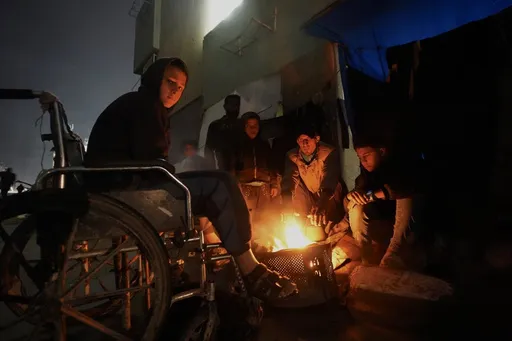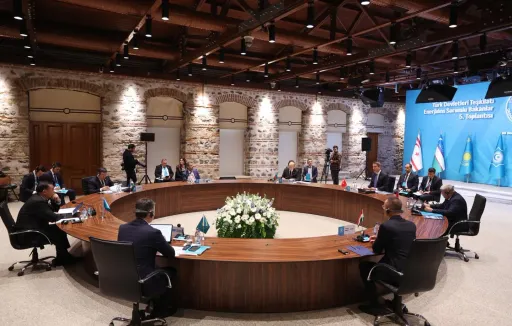By Abdulwasiu Hassan
Niger native Moustafa Abdoulmoumini often travels to the Mauritanian capital, Nouakchott, for business, occasionally taking the land route that entails traversing 2,680 kilometres one-way to reach his destination in two days.
Though both countries are within West Africa, getting to Nouakchott from Niger is a daunting task for anyone travelling on a budget.
The conflict in Burkina Faso and Mali, through which the fastest land route passes, means a road trip is the less preferred choice, albeit not entirely avoidable.
Air travel isn't a breeze either. Like several other destinations within the region, there is no direct flight between the two West African countries. A flight from Mauritania to Niamey takes about four hours.
This leaves Moustafa, and anyone else who travels between Mauritania and Niger, without direct air connectivity and few viable alternatives.
They have to brave travelling by road through Burkina Faso and Mali, or pay more to take a flight and yet end up spending extra hours in transit than those hopping onto a vehicle.
Delay in air travel
Moustafa knows that if he takes a flight from Nouakchott to Nimey in Niger, for example, he would have a several-hour layover in a third country before resuming his onward journey.
For someone who's aware beforehand that his journey will be interrupted by a lengthy layover, sometimes for a whole day, the delay can be accounted for while drawing up the itinerary.
It's a different ball game altogether when the traveller realises midway the consequences of one missed connection triggered by circumstances beyond one's control.
"Don't be shocked if, on your arrival at the airport, you are told that your flight has been cancelled," says former Niger Republic minister Mahaman Laouan Gaya, a frequent flyer within West Africa.
"It's happened to me three times. At the Lomé (Togo) transit, we were informed that there were no connections for the rest of our trip!" he says.
The lack of frequent and direct flights between various destinations also makes travel within West Africa considerably costlier than it should be.
"It goes without saying that the scarcity of commercial flights increases the cost of tickets. The areas in which there are frequencies and regularities of flights (North Africa, Southern Africa, and elsewhere outside Africa)," Gaya tells TRT Afrika
Not only is productivity generally affected by prolonged travel duration and time wasted at airports waiting for rescheduled flights, the problem also stops many people from venturing out of their countries to explore business opportunities within West Africa.
Hurdles on the road
Taking the land route is the alternative for those not ready for the disappointments and delays that come with air travel.
Though one of the visions of the regional group, the Economic Community of West African States (ECOWAS) is “an integrated region where the population enjoys free movement", experts say that a legacy colonial mindset, and administrative and security hurdles still hamper free movement on the ground.
“When we first came here, we spent 13 days on the road,” Yusuf Mohammed, a Nigerian doing business in Nouakchott, recounts to TRT Afrika. “Once you have left Nigeria and Niger, travel becomes difficult."
Yusuf alleges that sometimes officials on the road extort money from passengers, so much so that they might end up giving out more than their transport fare to men in uniform.
“At any police post, you have to pay,” he says. "Some might even accuse you of an infringement due to one of your papers and ask you to pay,’’ he adds.
Thankfully, once a traveller is done with immigration and customs at the border, it is easier to move about without being asked to pay a bribe.
Double whammy
Experts say the problems West Africans experience while travelling by road within the sub-region have far-reaching effects beyond the ground.
“Difficulties faced on the road have snowballed into challenges for the business of air travel. People don't want to go to these countries, based on their experience on the road,” aviation analyst Olumide Ohunayo tells TRT Afrika.
This problem is compounded by the scarce flight options available to 430 million West Africans.
Although Africa accounts for only one per cent of air traffic, according to a World Bank study, analysts say flight connectivity is weaker in West Africa than in North and Southern Africa.
The circle of weak connections by road and air within the sub-region limits interaction between West African people and their ability to do business together.
The way out
If the lags in West African connectivity persist, they will affect the realisation of the vision of a borderless region geared towards uplifting the standard of living of West Africans.
Analysts believe governments within the sub-region need to commit more to upholding protocols of the Economic Community of West African States.
“We need to accept that all the protocols that we have signed as members of ECOWAS should go beyond just documentation. These must be protocolised, whereby people can leave one country in the sub-region and go into another country without any hassle,” says Olumide.
Another issue that experts say needs to be addressed is that of prohibitive taxes, meant to protect domestic airlines from competitive foreign airlines.
The taxes imposed on airlines are passed down to passengers, which make the flights more expensive than they should be.
Owners of small businesses like Moustafa and Yusuf look forward to the day they will be able to move around within West Africa with convenience that doesn't cost them a fortune.
This, they believe, will not only make their lives easier and more prosperous, but also benefit the economy of the sub-region.
























